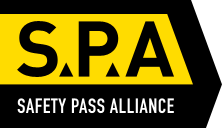HSE releases annual workplace fatality figures
The Health and Safety Executive (HSE) has today released its annual figures for work-related fatalities, as well as the number of people known to have died from the asbestos-related cancer, mesothelioma, in 2015.
The provisional annual data for work-related fatal accidents revealed that 137 workers were fatally injured between April 2016 and March 2017 (a rate of 0.43 per 100,000 workers), the second lowest year on record.
There has been a long-term downward trend in the number of fatal injuries to workers they have halved over the last 20 years although in recent years the trend shows signs of levelling.
HSE Chair Martin Temple said:
Every fatality is a tragic event that should not happen. While we are encouraged by this improvement on the previous year, we continue unwaveringly on our mission to prevent injury, death and ill health by protecting people and reducing risks.
The new figures show the rate of fatal injuries in several key industrial sectors:
- 30 fatal injuries to construction workers were recorded. While this accounts for the largest share, this is the lowest number on record for the sector. However, over the last five years the number has fluctuated, The annual average for the past five years is 39. The annual average rate over the last five years in construction is around four times as high as the all industry rate.
- 27 fatal injuries to agricultural workers were recorded. This sector continues to account for a large share of the annual fatality count. It has the highest rate of fatal injury of all the main industry sectors, around 18 times as high as the all industry rate.
- 14 fatal injuries to waste and recycling workers were recorded. Despite being a relatively small sector in terms of employment, the annual average fatal injury rate over the last five years is around 15 times as high as the all industry rate.
The fatalities in the waste and recycling sector in 2016/17 include the single incident at Hawkeswood Metal Recycling Ltd in Birmingham on 7 July 2016 which resulted in five deaths.
Martin Temple continued:
As we approach the one-year anniversary of this incident, our thoughts remain with the families of those who died. We continue to fully support West Midlands Polices investigation.
The new figures also highlight the risks to older workers around a quarter of fatal injuries in 2016/17 were to workers aged 60 or over, even though such workers made up only around 10% of the workforce.
There were also 92 members of the public fatally injured in accidents connected to work in 2016/17. Almost half of these occurred on railways with the remainder occurring across a number of sectors including public services, entertainment and recreation.
Mesothelioma, one of the few work related diseases where deaths can be counted directly, contracted through past exposure to asbestos killed 2,542 in Great Britain in 2015 compared to 2,519 in 2014. The current figures relating to asbestos-related cancer reflect widespread exposures before 1980. Annual deaths are therefore expected to start to reduce after this current decade.
A fuller assessment of work related ill-health and injuries, drawing on HSEs full range of data sources, will be provided as part of the annual Health and Safety Statistics release on 1 November 2017.
The HSE Chair added:
We deal daily with the causes and consequences of work-related deaths, injuries and ill health. Todays updated figures continue to inform our understanding of which areas we need to target.
We concentrate our interventions where we know we can have the biggest impact. We hold dutyholder’s accountable for managing the risks they create in the workplace. This benefits workers, business performance, the economy and wider society alike.
Notes to editors
1. The Health and Safety Executive (HSE) is Britain’s national regulator for workplace health and safety. It helps Great Britain work well by applying a broad range of regulatory interventions and scientific expertise, to prevent work-related death, injury and ill health. It does so through research, information and advice, promoting training, new or revised regulations and codes of practice, and working with local authority partners by inspection, investigation and enforcement. www.hse.gov.uk
2. The average rate of fatal injury over the last five years has been 0.46 per 100, 000 workers. In each of the last five years, the number of fatal injuries has been:
- 2015/16 147 workers died
- 2014/15 142 workers died
- 2013/14 136 workers died
- 2012/13 150 workers died
- 2011/12 171 workers died
3. There were 2542 mesothelioma deaths in 2015, a similar number to the 2519 deaths in 2014. The increase in mesothelioma deaths in recent years has been driven mainly by deaths among those aged 75 and above. Of the deaths in 2015, 407 were among women and 2135 were among men again this ratio is consistent with previous years. The latest projections suggest there will continue to be around 2500 deaths per year for the rest of this current decade before annual numbers begin to decline. The current figures relating to asbestos-related cancer reflect widespread exposures before 1980.
4. The published fatal injury statistics also include a breakdown by country and region. Recent research suggests that variations in fatal injury rates between the countries and regions of Great Britain are largely explained by differences in the industry composition of the workforce between the countries and regions.
5. Britain has consistently had one of the lowest rates of fatal injuries to workers. In 2014, Britain had the lowest rate compared to other leading industrial nations in Europe Germany, France, Spain, Italy and Poland http://www.hse.gov.uk/statistics/pdf/fatalinjuries.pdf ![]() [
[
6. The reporting of health and safety incidents at work is a statutory requirement, set out under the Reporting of Injuries, Diseases and Dangerous Occurrences Regulations (RIDDOR). A reportable incident includes: a death or specified injury; any accident which does not result in a specified injury, but the injured person still has to take seven or more days off their normal work to recover; a work related disease; a member of the public being injured as a result of work related activity and taken to hospital for treatment; or a dangerous occurrence, which does not result in a serious injury, but could have done.
7. The fatal injury figures do not include fatal accidents on non-rail transport systems or work-related deaths from fatal diseases.
8. Further information on these statistics can be found at http://www.hse.gov.uk/statistics




















